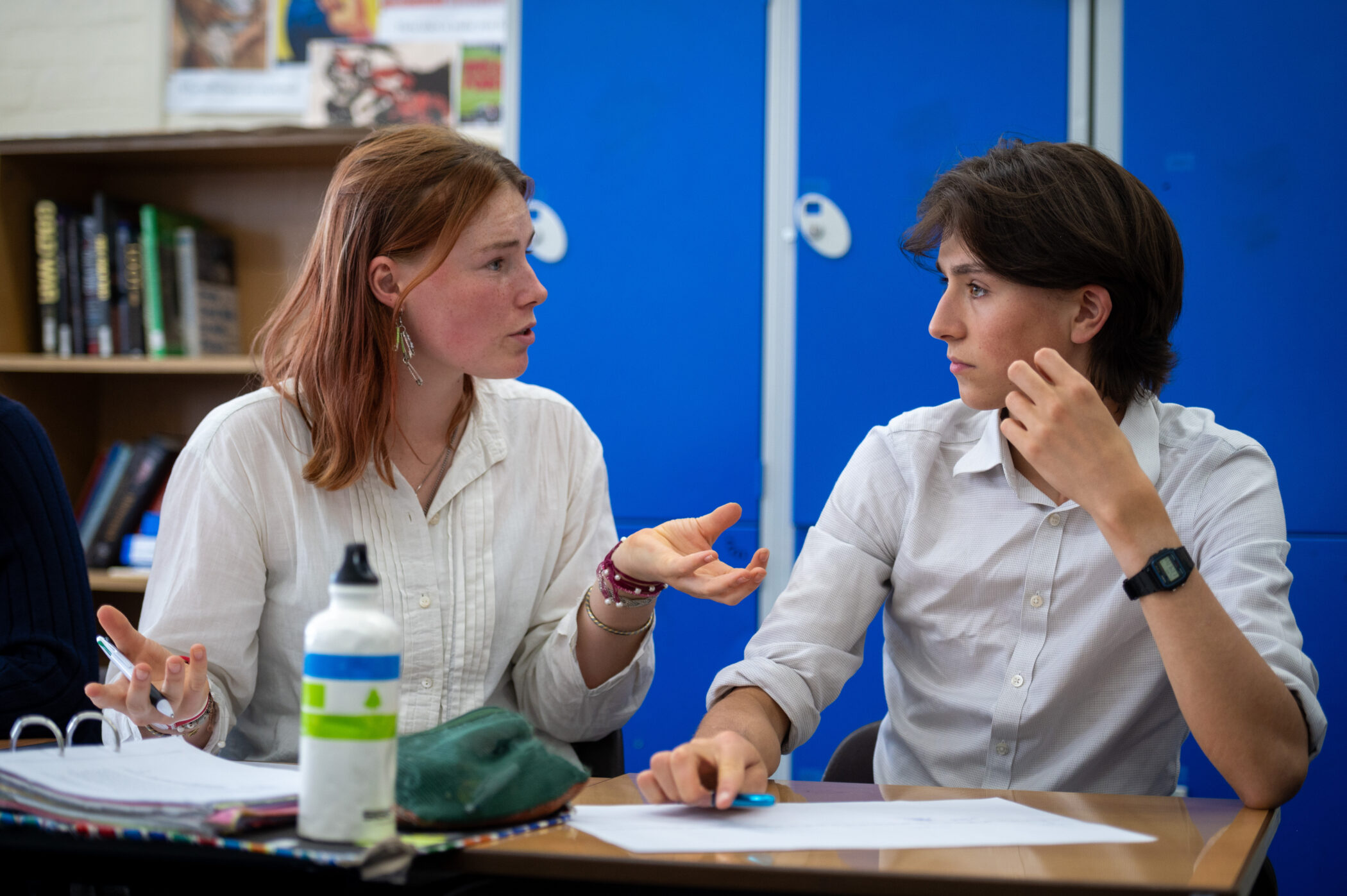A-level Philosophy
Philosophical questions are concerned with what is fundamental, and give little clue as to how we should go about answering them. Indeed, part of the philosopher’s job is to discover or invent a suitable method for uncovering fundamental truths about what there is, how much we can know and how we ought to behave. The questions tend to be abstract, contentious and hard; answers are often tentative, and they rarely satisfy everybody. But this shouldn’t be taken to imply that there is no truth to be found: as with the study of natural science, the study of philosophy requires us to take reasons seriously while engaging rigorously with some of the most important and pressing questions there are.
Furthermore, the philosopher’s forensic approach to solving problems is both productive and deeply satisfying: Instead of wallowing in superficial disagreement and knocking down straw men, the philosopher aims to clarify what the problem is and to establish what might count as a satisfactory answer. The Department’s principal aim is to foster pupils’ intellectual curiosity and autonomy by developing their analytical skills, providing the tools necessary for genuinely reflective critical thinking about any questions. Philosophy is thus a uniquely valuable partner to any combination of A-Level subjects across the Sciences, Humanities and Arts.
Course content L6
Epistemology
- The origin and nature of concepts
- The nature of knowledge, and how it is acquired
- Justification
- Perception
The Metaphysics of God
- The concept of God
- Arguments relating to the existence of God
- The nature of religious language
Course content U6
Moral Philosophy
- Ethical theories and the question of how we decide what it is morally right to do
- Moral psychology and metaphysics
- Ethical language and its status
The Metaphysics of Mind
- The relationship between the mental and the physical
- Theories of mind including dualism, logical behaviourism, type identity theory, functionalism and eliminativism
Extra curricular
The Philosophy Society meets weekly and features a mixture of pupil speakers and guests from Oxford University and beyond (its ‘Proceedings’ are online at mcsphilsoc.wordpress.com). In addition there is a weekly Philosophy Discussion Group, aimed especially at Sixth Formers applying for Philosophy and related courses at University, but open to all. A-level Philosophers also attend a range of conferences and external lectures over the course of the year.
Examination arrangements
The course is supported by readings from primary texts, with texts ranging from Ancient Greece to the 21st Century. Pupils are examined on their capacity to analyse and evaluate the arguments of others and, crucially, to present their own arguments clearly and logically.
There are two exams in Trinity of the U6th, each worth 50% of the A-level. Both are three hours long and are composed of a mixture of short, medium and essay-length answers.
Paper 1: Epistemology & Moral Philosophy.
Paper 2: Metaphysics of God & Metaphysics of Mind.
| Recommended preparation | ||
| Nagel, Thomas | What Does It All Mean? | |
| Blackburn, Simon | Think | |
| Further inspiration | ||
| Philosophy Bites | …Then pursue any interesting leads in one of the following | |
| Martin, Robert | There are Two Errors in the the Title of This Book | Good for logic, puzzles and paradoxes |
| Hume, David | Dialogues concerning Natural Religion | An entertaining examination in dialogue form of the rationality of religious belief |
| Sandel, Michael | Justice: What’s the Right Thing to Do? | Brilliant at showing how real, hard philosophical problems arise out of practical issues |
| O’Hear, Anthony | Introduction to the Philosophy of Science | Eespecially relevant if you’re considering A Level sciences |
| Swift, Adam | An Introduction to Political Philosophy | Luminous conceptual clarity on such thorny questions as the nature of justice, equality and freedom |
| Montaigne | Essays | Written in the Sixteenth Century but often strikingly modern, there are longer meditations here alongside short, pithy gems. Deeply perceptive and sometimes funny |
 MCS ranks among the top independent secondary schools, and in 2024 was awarded Independent School of the Year for our contribution to social mobility.
MCS ranks among the top independent secondary schools, and in 2024 was awarded Independent School of the Year for our contribution to social mobility.

 28 of our pupils achieved 10 or more 8 or 9 grades in 2024.
28 of our pupils achieved 10 or more 8 or 9 grades in 2024.
 In 2023-24, MCS received over £448,000 in donated funds.
In 2023-24, MCS received over £448,000 in donated funds.

